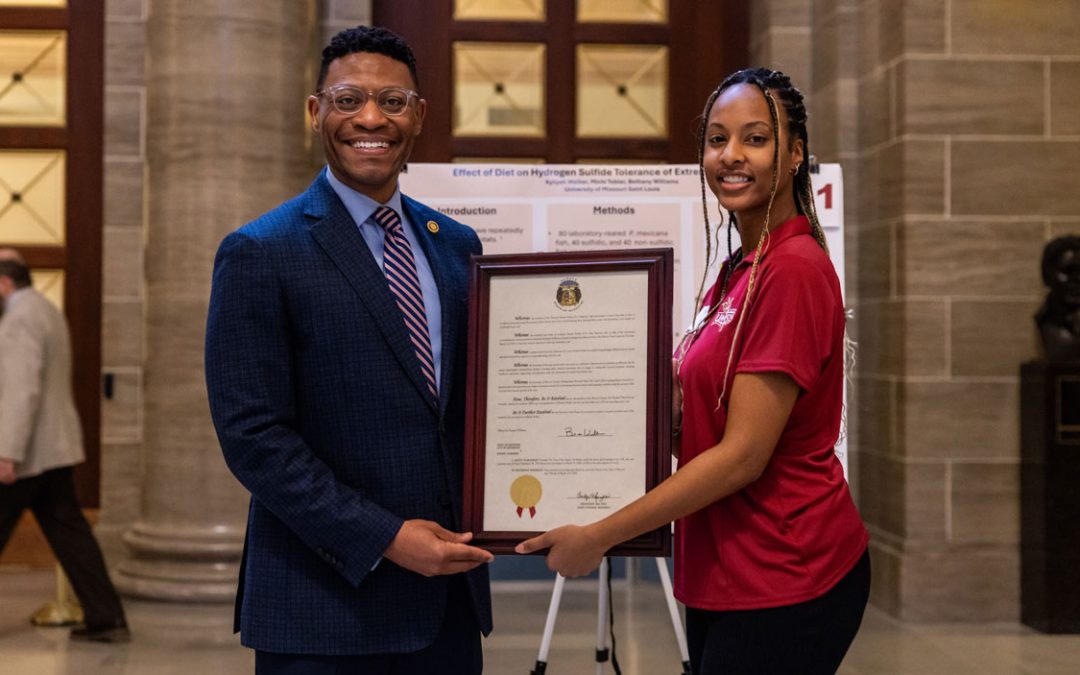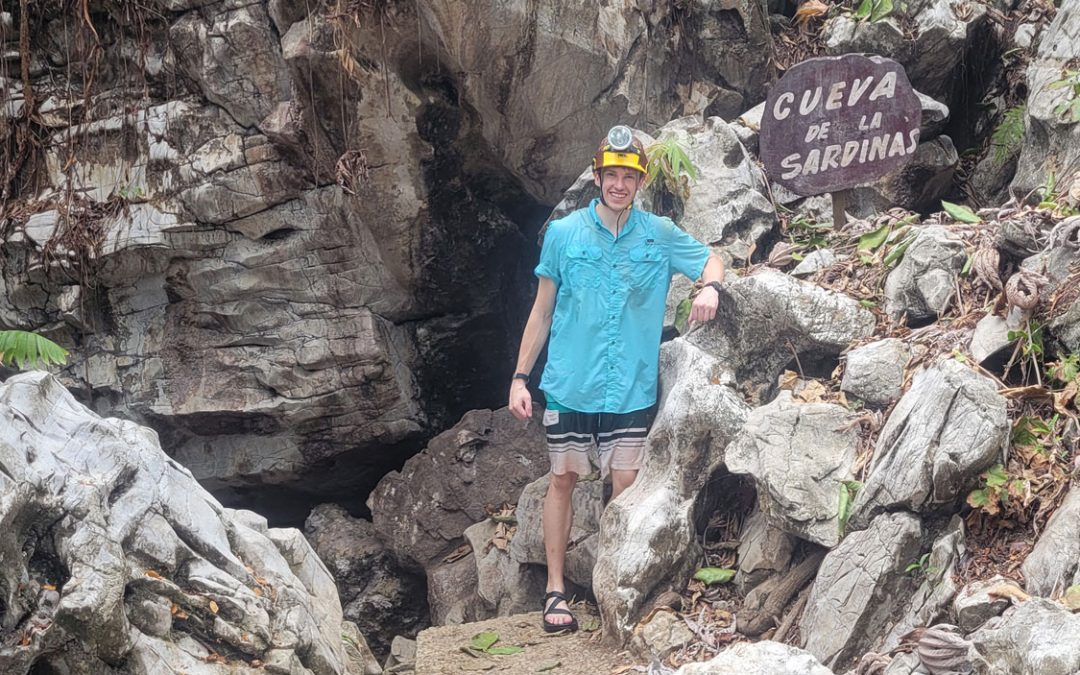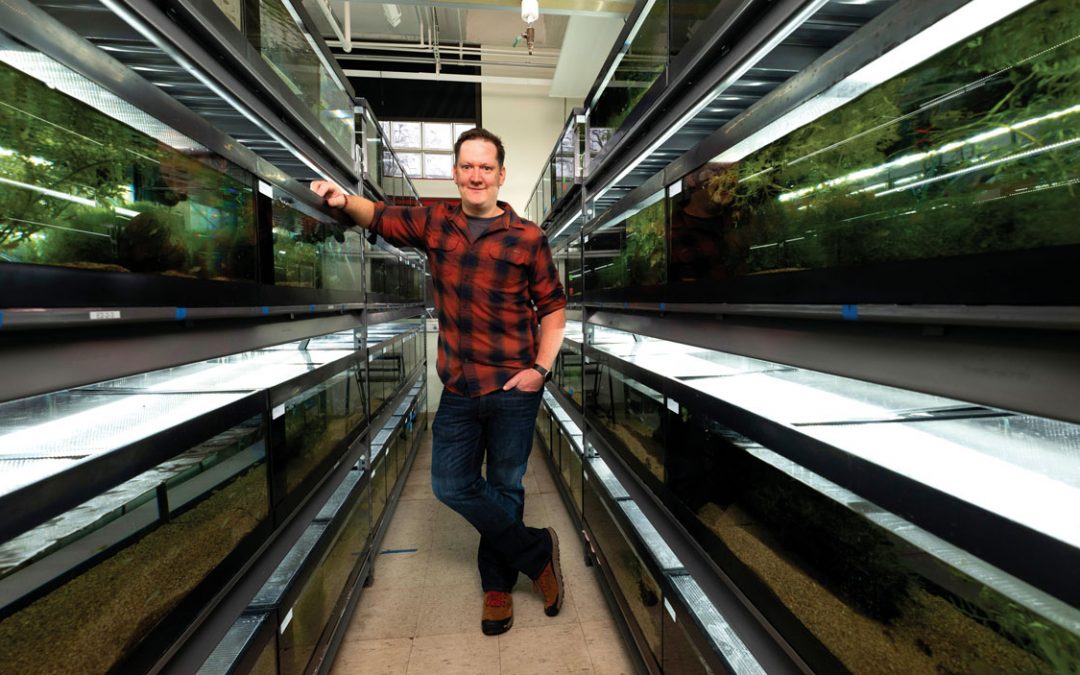Walker studies Poecilia mexicana, a species of live-bearing fish that have adapted to surviving in hydrogen sulfide-abundant waters, in the Tobler Lab.


Walker studies Poecilia mexicana, a species of live-bearing fish that have adapted to surviving in hydrogen sulfide-abundant waters, in the Tobler Lab.
Walker studies Poecilia mexicana, a species of live-bearing fish that have adapted to surviving in hydrogen sulfide-abundant waters, in the Tobler Lab.
Walker studies Poecilia mexicana, a species of live-bearing fish that have adapted to surviving in hydrogen sulfide-abundant waters, in the Tobler Lab.
Nichols is investigating proteins linked to inflammation in the brain that occurs as part of the neurodegenerative disease.

Johnson was a 2024 recipient of the R. C. Lewontin Early Award, a graduate research grant from the Society for the Study of Evolution.
Johnson was a 2024 recipient of the R. C. Lewontin Early Award, a graduate research grant from the Society for the Study of Evolution.
Johnson was a 2024 recipient of the R. C. Lewontin Early Award, a graduate research grant from the Society for the Study of Evolution.

Tobler, the E. Desmond Lee Endowed Professor in Zoological Studies, has developed a research focus on livebearer fish that have adapted to live in the presence of hydrogen sulfide.
Tobler, the E. Desmond Lee Endowed Professor in Zoological Studies, has developed a research focus on livebearer fish that have adapted to live in the presence of hydrogen sulfide.
Tobler, the E. Desmond Lee Endowed Professor in Zoological Studies, has developed a research focus on livebearer fish that have adapted to live in the presence of hydrogen sulfide.